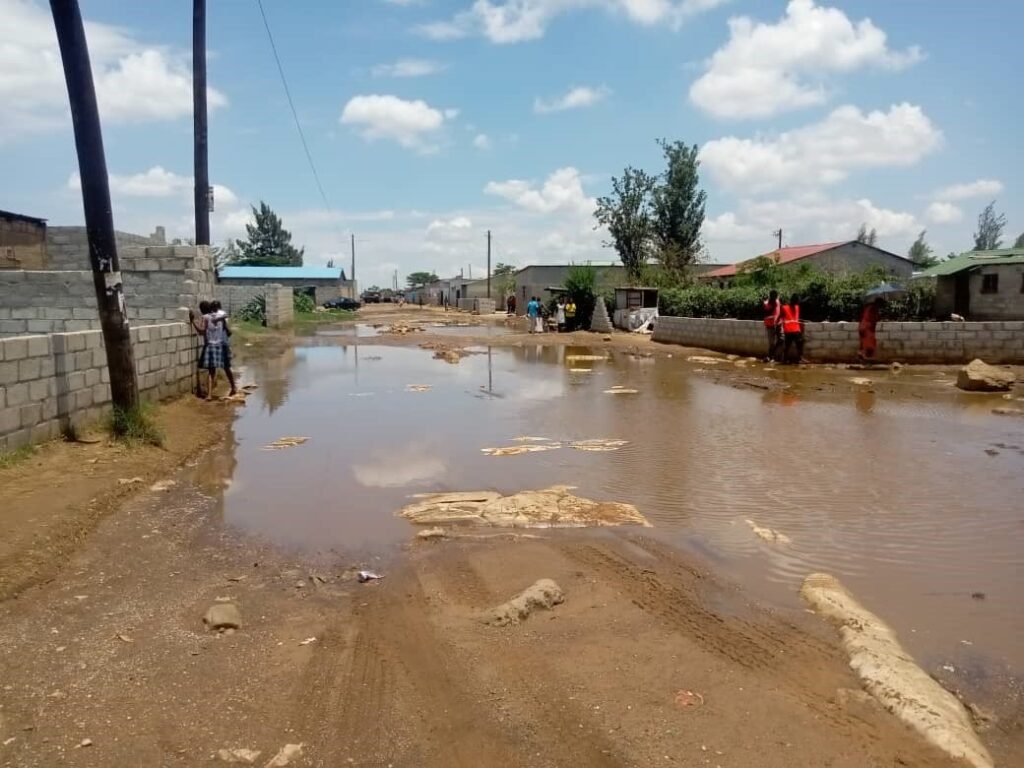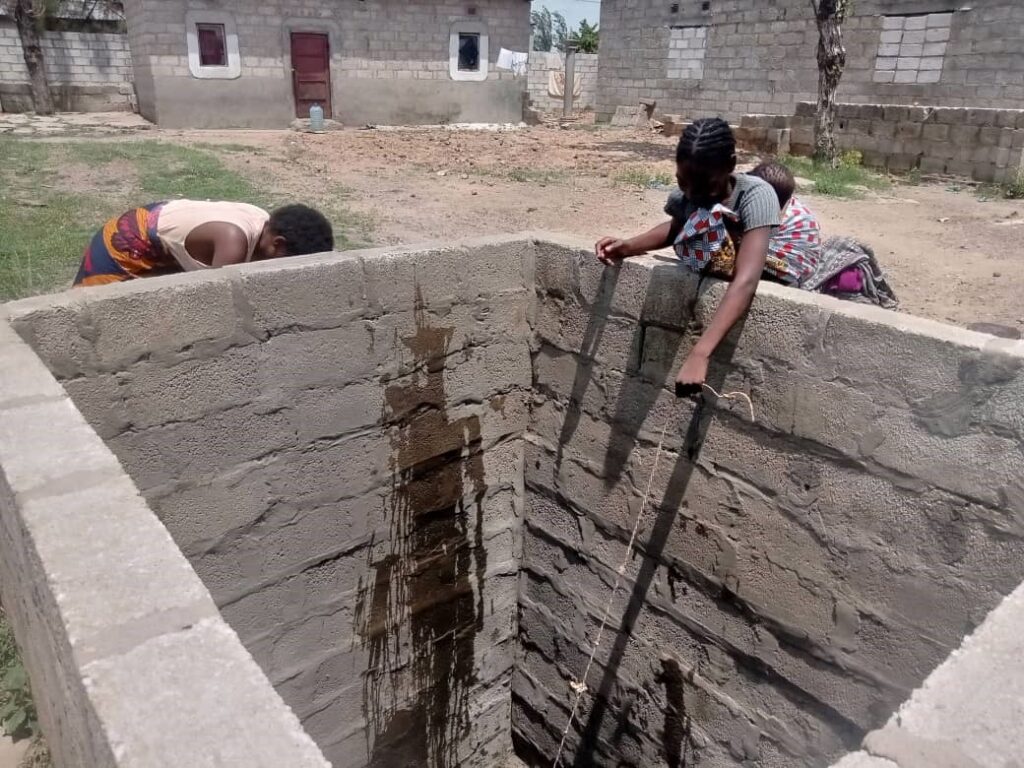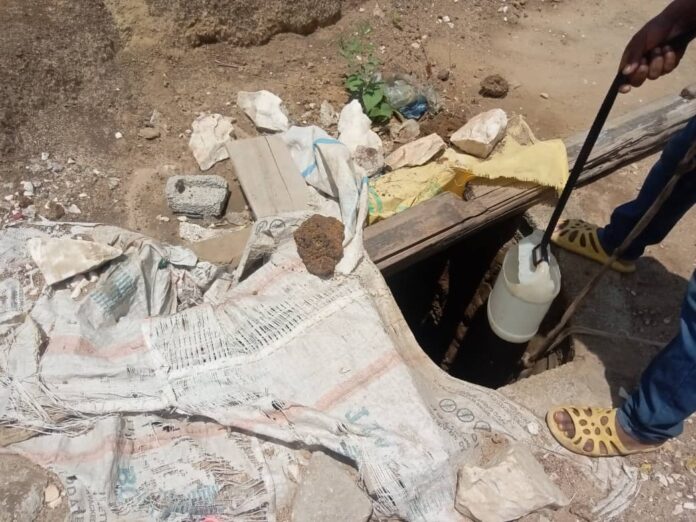By Linda Soko Tembo
The current cholera outbreak in Lusaka and across Zambia, marked by deaths and hospital admissions, highlights significant concerns about inequality and the need for more robust social development initiatives.
On December 14, Minister of Health Sylvia Masebo shared alarming statistics. From October 2023 to the current date, the Ministry had documented a total of 1,385 cases in Lusaka Province alone, leading to 36 deaths.
Nationally, the data reveals 3,101 cumulative cases and 80 lives lost since January 26, 2023 to date, with potentially higher numbers by the end of rainy season.
Cholera and inadequate water supply are intertwined issues
Cholera outbreaks are linked to insufficient water and sanitation infrastructure, facilitating the transmission of the bacterium Vibrio cholerae. As of 2020, only two-thirds of Zambians had access to basic water services, and about half had access to basic or limited sanitation.
Even though the government is improving water and sanitation in cities, places like Kanyama, which are unplanned and very crowded, still face problems. People there worry about not having enough space and bad soil, which makes it hard to build toilets.
Additionally, the roads are also not good, making the drainage problems worse and causing more difficulties for the community.

Many residents of Kanyama, including 49-year-old Conford Moonga, a father of seven children, still rely on water from shallow wells.
In this area, overused existing latrines attract vermin, and during the rainy season, overflowing sewage contaminates wells, resulting in waterborne diseases like diarrhea, dysentery, and cholera.

Moonga told MakanDay that he and fellow residents encounter various challenges, including a lack of access to clean and safe drinking water, as well as the poor road network.
For the past nine years, Moonga and his family have been depending on water from a nearby shallow well situated right beside their house. He explained that due to his unemployment, affording chlorine regularly for water treatment poses a significant challenge.
Moonga led a MakanDay journalist to the well, the source used by his family for drinking, bathing, and washing clothes. To the journalist’s dismay, a dead frog, along with leaves and plastic bottles, were visibly lodged in the water. Furthermore, the shallow well remained uncovered, lacking any protection to prevent contamination from external sources.
“We’re left with no choice but to use this water for all our needs, including drinking, cooking, bathing, and washing dishes,” he explained.
“Unfortunately, this frequently results in cases of diarrhea among us. The fear of cholera haunts us, and we dread the consequences,” he added.
He noted that despite efforts to boil the water, it is evident that the water source is inherently unsafe.
Andyson Chama, the zone coordinator for Garden Motel, echoes Moonga’s sentiments, emphasising that whenever cholera outbreaks occur in the country, Kanyama is never spared.
He highlighted that the absence of a market compels traders to sell on the streets, where they operate without designated toilets or proper waste disposal areas, resulting in unsanitary conditions and difficulties in managing garbage disposal.
According to Councilor Gerald Samboko of Garden Park Ward 10, where Moonga lives, the situation has worsened due to the failure to establish an electricity connection for the water pumping system.
“This is why, in the mornings, you find faecal matter in plastic bags right where they trade. When asked, they often attribute it to passersby rather than taking responsibility,” he said.
He explained that despite ongoing efforts to link over a thousand residents to the Lusaka Water Supply and Sanitation Company (LWSC), the installed commercial borehole, water tank, and the pipe network remain inactive due to the absence of electricity.
“It’s hard to believe that Zesco would take a whole year to connect the power supply,” he said. “At first, I thought that by August, the people in the area would finally get clean water. Unfortunately, even though the tank was installed in August last year, there’s still no power connected up to this point,” he explained.”
Goodwell Simbeya, the Zesco Deputy Director overseeing distribution projects in the area, clarified that an official contractor has been engaged for the installation of the power infrastructure. He also said that the contractor is set to start working on-site as soon as possible.
“This project is close to completion, and despite the regrettable delay, we are making every effort to speed up the power connection to the site,” Simbeya informed MakanDay.
Aongola Mundea Sato, Acting Manager of Public Relations and Customer services for LWSC, explained that the construction of a 6.7km new water supply network which should address some of the water problems in Kanyama, started on October 15, 2021.
She said this significant project has received support from the German Agency for International Cooperation (GIZ) and aims to benefit around 3,000 homes in the area.
“This project, backed by GIZ, incurred costs amounting to K1,017,500. Initially slated for completion by December 31, 2022, since its conclusion, more than 300 households have already been successfully connected to this newly established network,” Sato emphasised.
Financing gap
Zambia aspires to achieve universal access to safe and affordable water and sanitation services by 2030. However, a substantial financing gap hinders the realisation of universal coverage for water supply and sanitation services, as outlined in Vision 2030.
Although government allocated K2.4 billion (US$134 million) towards water supply and sanitation services in the 2023 budget, marking a 9% increase compared to the 2022 allocation of K2.2billion (US$122.22 million), it still falls considerably short of the necessary investment.
Main photo: Cholera prevention message from the Zambia National Public Health Institute (ZNPHI)

Discover more from MAKANDAY
Subscribe to get the latest posts sent to your email.



